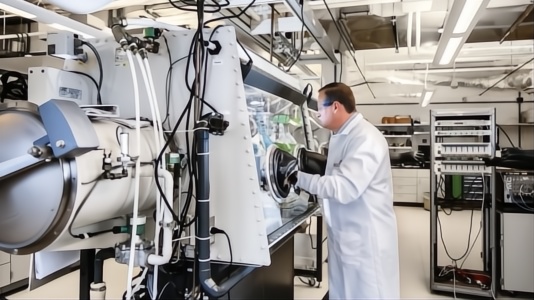A new consortium backed with $50 million of federal money will look to develop a sodium-ion battery technology ecosystem in the US, the aim of which is to reduce dependence on the limited and strategically important elements used in lithium-ion batteries.
Argonne National Laboratory said the US Department of Energy has awarded the money over five years to establish the Low-cost Earth-abundant Na-ion Storage (LENS) consortium. Led by Argonne, it will also include DOE’s Brookhaven National Laboratory, Lawrence Berkeley National Laboratory, Pacific Northwest National Laboratory, Sandia National Laboratories and SLAC National Accelerator Laboratory.
Venkat Srinivasan, LENS consortium director, said: “The challenge ahead is improving sodium-ion energy density so that it first matches, and then exceeds, that of phosphate-based lithium-ion batteries while minimising and eliminating the use of all critical elements.”
Argonne said sodium, as an abundant element, can reduce risk and increase supply chain resilience by providing a wider variety of cost-effective options. Dominant batteries today include lithium, cobalt and nickel.
While sodium is plentiful, its lower energy density results in lower driving range, a “stumbling block” to competing, Argonne noted.
An advisory board comprising well established and emerging companies will provide the consortium with valuable industry perspectives, Argonne said.
Photo: Working on advanced batteries. Argonne National Laboratory












